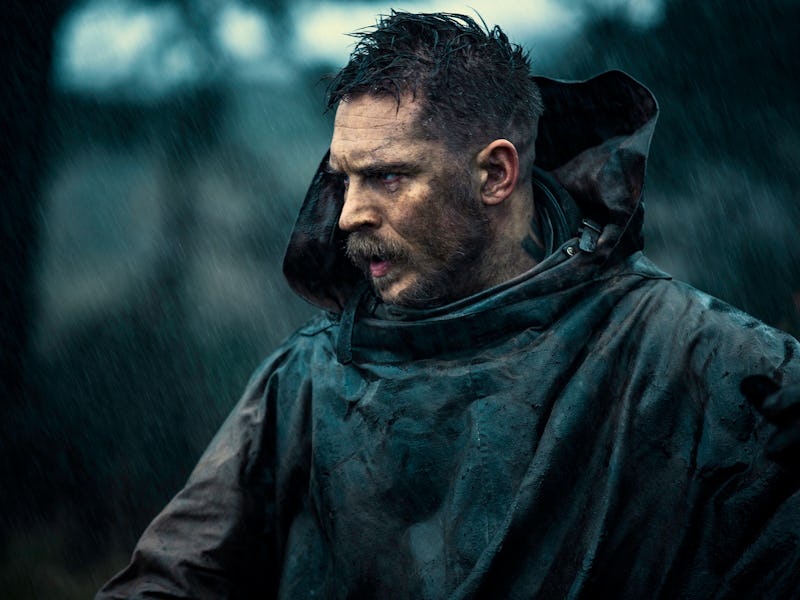The Sexual Fantasies of the Victorian Era Are Lovingly Recreated in 'Taboo'
Historians scorn some of Taboo's depictions, but here's why the new Tom Hardy show is historically accurate.

Although Tom Hardy does bite someone in FX’s miniseries Taboo, he doesn’t literally commit the taboo of cannibalism. The show is simultaneously a Dickensenian period drama and a pulpy, gothic cable show. So far, the taboos the show explores include cannibalism and incest, and it’s in that uncomfortable space that it really finds its footing. Though historians might take issue with the show’s depiction of the East India Company, its attempts to adapt the Victorian zeitgeist into engrossing drama is more successful.
Taboo opens with Hardy’s character, James Delaney, shocking everyone in English society by not being dead, as he’s been gone for many years in Africa. He’s returned to claim his inheritance from his deceased father, and generally kick the asses of those who oppose him. He aggressively tells an old flame (played by Oona Chaplin) that he still loves her and delivers lines like, “I know things about the dead.” and “I will return you 12 sets of testicles in a bag.”
But then, furthering the strange tone, Delaney’s old flame is revealed to be his half-sister. While it’s difficult to know to what extent the Victorians practiced incest behind closed doors, Victorian scholar Sharon Marcus tells Inverse that it’s the most commonly represented fantasy in the pornography of the era.
Tom Hardy in 'Taboo'
Cast in this light, Taboo might have some historical inaccuracies, but it’s a pretty accurate example of what Victorians fantasized about, and saw in their fiction. As the show contains supernatural elements, it clearly isn’t striving for abject realism — but its adherence to Victorian-era fantasy is arguably as important as the reality. After all, people’s preoccupations and obsessions are just as crucial to capturing a zeitgeist as what their literal circumstances are.
Similarly, Hardy’s character is trailed by accusations of madness, savagery, and unnatural acts. Although the audience is not yet privy to his experience in Africa, it isn’t hard to discern that everyone else in London society thinks cannibalism is involved. As the gentlemen of the East India Company say, Delaney is “an adventurer of very poor repute,” trailed by rumors that he’s been up to “awful and unnatural acts” during his time abroad.
Oona Chaplin asZilpha Geary
Just like the incest element, how the Victorians thought about this subject is as important as the reality. And while cannibalism was certainly a practice in parts of Africa in the 1800s, more important is the upper-crust English society’s attitude towards the “other.” Joseph Conrad’s iconic Heart of Darkness, written around the era in which Taboo is set, is preoccupied with the ideas of “civilization” versus “savagery.” Further, the notion of Africa as a place of “savagery” is baked into the very foundation of colonialism and imperialism.
Historians might dispute with Taboo’s take on the East India Company for sound reason. But the show knows that people’s preoccupations and fantasies are just as crucial to an era as their reality. And in that regard, Taboo uniquely shines.
Taboo airs Tuesdays on FX.